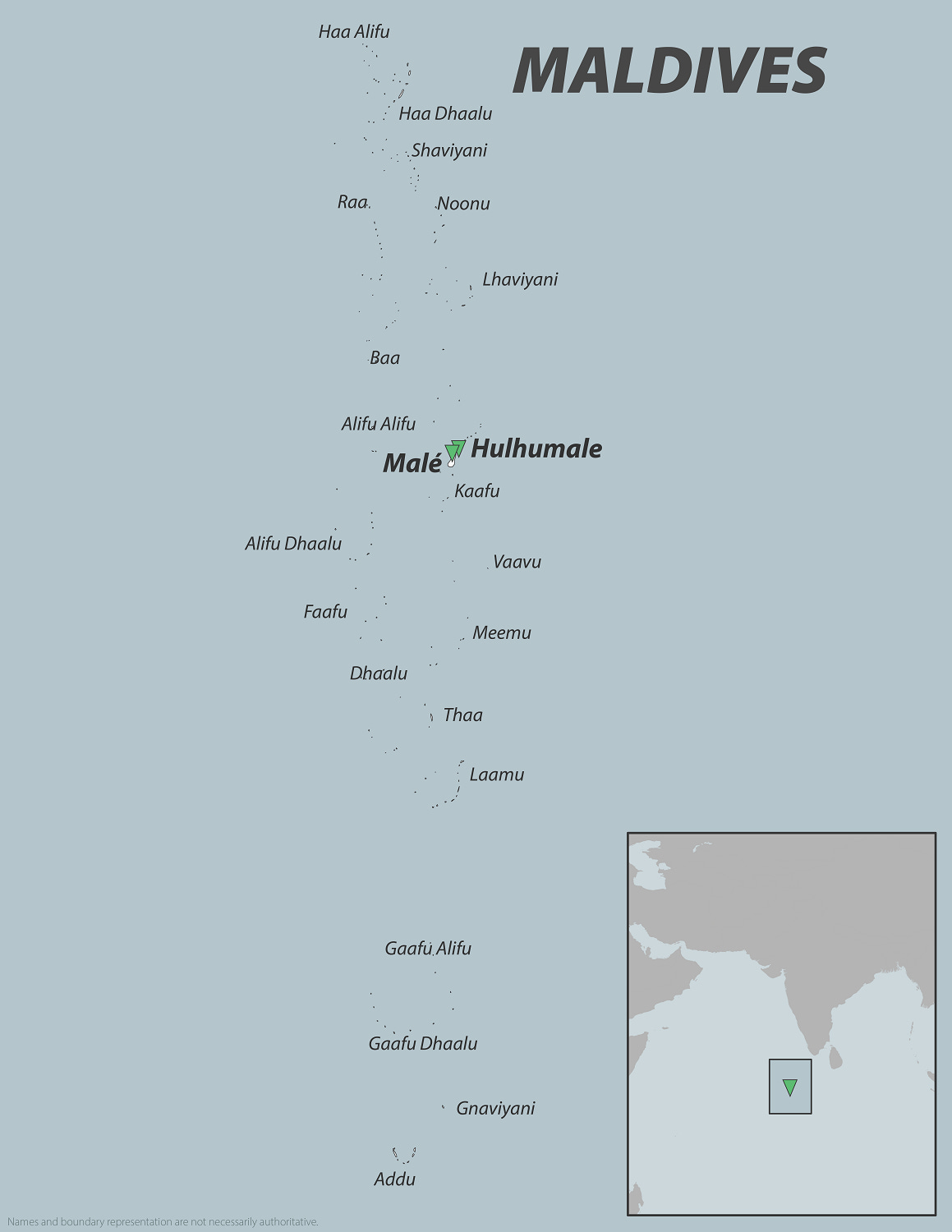The Maldives is a country and archipelagic state in South Asia in the Indian Ocean. The Maldives is southwest of Sri Lanka and India.
Last week, the Centers for Disease Control and Prevention (CDC) issued a travel notice for the Maldives due to a chikungunya outbreak in the Malé and Hulhumalé regions.
According to the website, Crisis24: Health authorities have reported elevated chikungunya activity in multiple areas in the Maldives, with 389 total cases reported March 1-May 11. Male (309 cases) is most affected, followed by Hulhumale (66 cases), Gaafu Dhaalu Atoll (4 cases), and Shaviyani Atoll (3 cases).
Chikungunya disease is caused by the chikungunya virus and is spread to humans through mosquito bites. Outbreaks have occurred in countries in Africa, Americas, Asia, Europe, the Caribbean, and Indian and Pacific Oceans.
Most people infected with chikungunya virus develop some symptoms. Symptoms of chikungunya usually begin 3–7 days after a bite by an infected mosquito. The most common symptoms are fever and joint pain. Other symptoms may include headache, muscle pain, joint swelling, or rash. Most people get better within a week; however, some can have severe joint pain for months to years following acute illness.
People at risk for more severe disease include newborns infected around the time of birth, older adults (65 years or older), and people with medical conditions such as high blood pressure, diabetes, or heart disease. Death from chikungunya is rare.
Interview on chikungunya with Roger Nasci, PhD
CDC says:
You can protect yourself by preventing mosquito bites, which includes using insect repellent; wearing long-sleeved shirts and pants; and staying in places with air conditioning or that use window and door screens.
Vaccination for chikungunya is recommended for people aged ≥ 18 years who are traveling to a destination with a current chikungunya outbreak.
If you are pregnant, reconsider travel to Maldives, particularly if you are close to delivering your baby. Mothers infected around the time of delivery can pass the virus to their baby before or during delivery. Newborns infected in this way or by a mosquito bite are at risk for severe illness, including poor long-term outcomes.
You should seek medical care if you develop fever, joint pain, headache, muscle pain, joint swelling, or rash, during or after travel.





